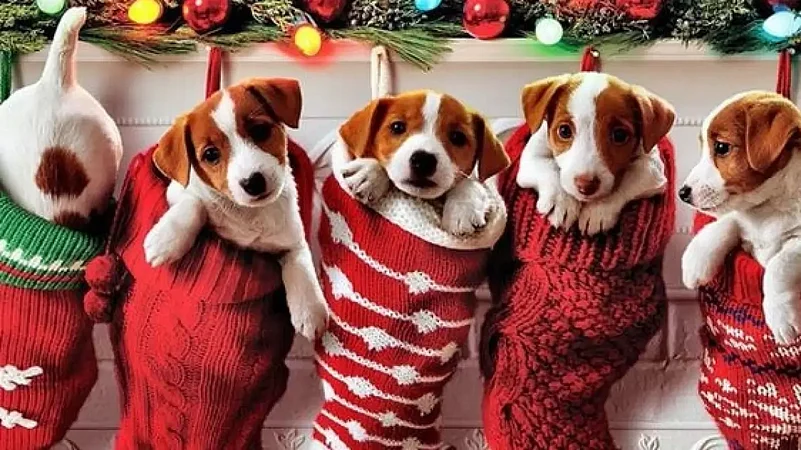Holiday season brings joy and merriment. It's crucial to ensure the safety of our furry companions amidst the festive frenzy. From tempting treats to twinkling decorations, here's a guide on navigating potential hazards and making the season pet-friendly.
1. Chocolates: A Canine Conundrum
Chocolate tops the list of "people foods" perilous to pets. The PetMD Chocolate Toxicity Meter aids in understanding the potential harm based on chocolate type, quantity, and pet size. Awareness is key, as even small amounts can lead to serious consequences.
2. Sweet Perils and the Xylitol Menace
Sweets and baked goods, often abundant during the holidays, pose risks to pets. Xylitol, an artificial sweetener present in various treats, has been linked to liver failure and canine fatalities. Vigilance in ingredient checks can prevent unintended harm.
3. Onions, Raisins, Grapes: A Recipe for Pet Poisoning
These common kitchen ingredients, while festive in human dishes, are poisonous to pets. Even minimal ingestion of raisins can be life-threatening for small dogs. Pet owners must exercise caution, keeping holiday dishes out of paw's reach.
4. Table Scraps Pitfalls: Gravy Gone Wrong
Fatty table scraps, a holiday indulgence, can lead to pancreatitis in pets. Gravy and meat fat, challenging for animal digestion, require moderation or exclusion from pets' diets to prevent health complications.
5. Taming the Tannenbaum: Securing Christmas Trees
Christmas trees pose risks of toppling over if pets climb or play with lights and ornaments. Safeguard your tree by securing it to the ceiling or door frame using a fishing line. This prevents accidental tree tumbles.
6. Ornamental Dangers: A Fragile Affair
Broken ornaments cause injuries, and ingested ones can lead to intestinal blockages or toxicity. Special attention is needed for homemade ornaments, particularly those crafted from food-based materials like salt dough.
7. Twinkling Tinsel and Tempting Ribbons: A Feline Fantasy
Tinsel, ribbons, and decorations attract pets but can result in serious health issues if ingested. Intestinal blockages may require surgical intervention. Responsible pet-proofing involves keeping such temptations out of reach.
8. Plant Perils: Deck the Halls with Caution
Festive plants like amaryllis, mistletoe, and poinsettias can be dangerous or poisonous to pets. A comprehensive list from the ASPCA guides pet owners in steering clear of potentially harmful flora during the holiday season.
9. Candle Cautions: A Pet-Safe Glow
Lit candles pose fire hazards if left unattended with pets. Never leave a pet alone in a room with a burning candle to avert potential disasters.
10. Potpourri Predicaments: Scents to Beware
Liquid potpourris containing essential oils and detergents can harm pets. Solid potpourris, if ingested, may lead to issues. Keeping these scented products out of reach safeguards pets from potential harm.
11. Party Precautions: Stress-Free Retreats
Amidst holiday gatherings, pets may feel overwhelmed. Providing a quiet retreat allows them to escape the crowd. Ensuring pets wear identification tags prevents the heartbreak of a lost pet during the festive hustle.
12. Guest Warnings: Courtesies for Canine Comfort
Informing guests about the presence of pets or the possibility of furry visitors fosters a harmonious environment. Considerations for pet allergies or fears contribute to a stress-free celebration.
13. Decorative Shutdown: A Safe Exit
Leaving for a holiday gathering requires unplugging decorations and securing trash bins with food scraps. This preventive measure ensures a safe home environment in the owner's absence.























